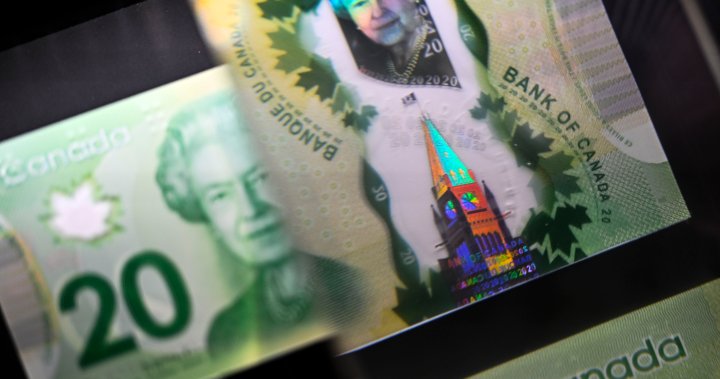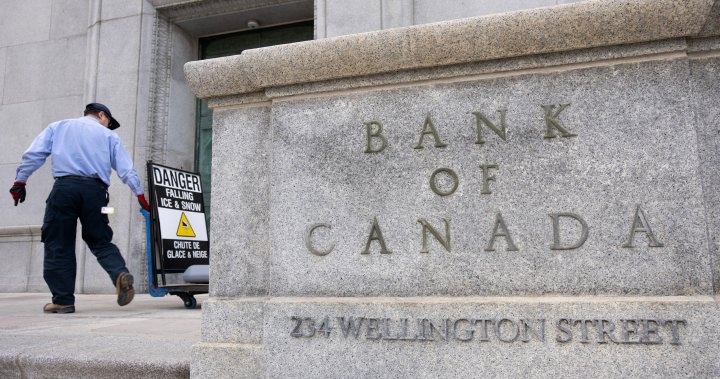City of Vancouver to probe investing in Bitcoin, accepting it as payment

Vancouver city council has voted to explore ways to make the municipality a “Bitcoin-friendly city.”
The motion approved Wednesday won’t mean the city is investing or accepting payment in cryptocurrency any time soon, but will instead direct staff to look into those possibilities.
The proposal passed along party lines with Mayor Ken Sim, who proposed the initiative, and his ABC Vancouver councillors in support, and two Green councillors opposed.
Thirty-four people signed up to speak to the motion, many of them enthusiastic supporters of the technology.

In an interview with Global News before the vote Sim, an avowed crypto evangelist, said exploring the idea was “the most responsible thing to do.”
“Bitcoin is the number one performing asset on the planet over the last 16 years, so to not even look at including it as a part of a diversified portfolio is, I think, reckless,” he said.
“Let’s just put it this way: it’s inevitable that this (widespread Bitcoin adoption) is going to happen. So I think the decision for Vancouver and the province and the country (is) do we want to be leaders or do we want to be laggards?”
The mayor told Global News he believes the cost of living is rising because government-backed currencies are becoming “debased” — something cryptocurrency could hedge against.
Sim, who said he used to be a cryptocurrency skeptic, claimed to have spent “10,000 hours” researching the topic, and acknowledged “it represents a part of our family’s portfolio.”
The mayor’s 2024 financial disclosure shows investments in Coinbase Global, a crypto trading platform, and Purpose Bitcoin ETF, a Canadian Bitcoin exchange-traded fund.

On Wednesday, he pledged to make a $10,000 donation of Bitcoin to the city regardless of which way the vote went.
ABC Coun. Peter Meiszner voted to approve the motion, saying he was interested in what staff would bring back in their report, but that still harbours some skepticism about cryptocurrency.

Get weekly money news
Get expert insights, Q&A on markets, housing, inflation, and personal finance information delivered to you every Saturday.
“I am cognizant that there is a significant difference between residents of Vancouver investing their own money in cryptocurrency and the city doing the same with public money,” he said.
Green Coun. Pete Fry said he couldn’t support the motion because it made no mention of Bitcoin’s potential use for money laundering — a problem he said underpins both the city’s drug and housing crisis.
“Back in 2019, the VPD came to this council and asked us to ban bitcoin ATMs over their concern for money laundering, as recently as May of this year (Canadian financial regulator) FINTRAC was warning of the same thing with Bitcoin ATMs,” he said.
“The RCMP, Europol, Interpol, the Department of Justice all warn of links between crypto and decentralized digital aspects and money laundering, drugs, even terrorism.”
Fry’s caucus colleague Adriane Carr also objected to the environmental concerns about Bitcoin, which demands large volumes of electricity to mine and to trade.
“There is a lot of concern around the use of electricity for example our hydroelectric grid,” she said.
“We’ve had conversations in this council chamber around the worry about the supply of electricity,” she added, pointing to the recent council debate about allowing natural gas in new home construction.

Carr further questioned how safe Bitcoin was as an investment.
While the cryptocurrency is currently trading at record highs, it is renowned for high volatility and massive swings in price.
At this time last year, Bitcoin was trading at less than one-third its current value.
Earlier this week UBC economics professor Werner Antweiler told Global News investing in cryptocurrency is a high-risk venture of the type typically eschewed by municipalities.
“The volatility in Bitcoin is in the same league as some of the highest volatility tech stocks like Tesla and NVIDIA and others,” he said.
“It is a speculative asset like any other stock, the value can go up and does go down and there is no guarantee it is preserving its value.”
City staff are expected to return with a report by the end of the first quarter of 2025.

Whatever that report includes, the concept of making Vancouver a Bitcoin-friendly city will still face major hurdles — first and foremost, provincial laws.
In a statement to Global News, the ministry of municipal affairs said cryptocurrency is not currently recognized as a form of payment for municipalities.
“Local governments in British Columbia, including the City of Vancouver, aren’t able to hold financial reserves in cryptocurrency,” the statement adds.
“The intent of legislation is that local government funds are not exposed to undue risk. These funds are provided by property taxpayers and developers with the expectation that the funds will be available to provide municipal services.”
Sim shrugged that concern off, telling Global News that being an early adopter means pushing boundaries.
“Governments have to catch up,” he said.
“Because I can tell you when we wake up five to 10 years from now, this is going to be ubiquitous across the planet.”








